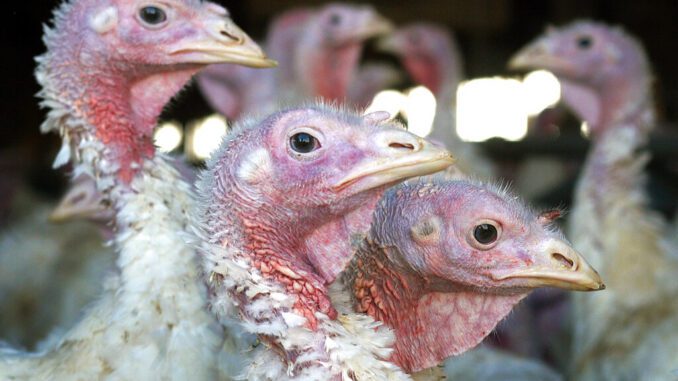
RALEIGH — A commercial turkey operation in North Carolina has tested positive for avian flu following a test by a veterinary lab, the first time the virus has been found in the state’s poultry industry, officials said last week.
The N.C. Department of Agriculture & Consumer Services said in a news release that the flock of 32,100 birds at the operation in Johnston County was killed and was being composted to guard against spread of the avian flu. The operation was not identified.
Mike Martin, state veterinarian, said in the news release that the department will test other flocks within a 6-mile zone in collaboration with federal and industry associates. The 6-mile zone includes Johnston County and portions of Sampson and Wayne counties, according to the department.
Since late January, the virus has been found in 48 commercial farms in 12 states and 32 backyard flocks in 13 states. Also, more than 100 hunter harvested wild birds have tested positive for HPAI in North Carolina and the N.C. Wildlife Resource Commission has reported four mortalities in wild birds from the virus.
The U.S. Centers for Disease Control and Prevention says avian flu is considered a low risk to humans but is highly contagious to other birds, including commercial and backyard flocks of poultry. The virus is also not considered a food safety threat and infected birds do not enter the food supply, the center said.
“The threat of high path avian influenza is statewide,” said Martin. “Our poultry population is at high risk. Commercial operations and backyard flock owners should continue to follow strict biosecurity measures including keeping birds enclosed without access to wild birds or other domestic flocks. If your birds are sick or dying, report it right away to your local veterinarian, the N.C. Department of Agriculture and Consumer Services Veterinary Division, 919-707-3250, or the N.C. Veterinary Diagnostic Laboratory System 919-733-3986.”
The warning signs of HPAI include:
- Reduced energy, decreased appetite, and/or decreased activity
- Lower egg production and/or soft-shelled or misshapen eggs
- Swelling of the head, eyelids, comb and wattles
- Purple discoloration of the wattles, comb and legs
- Difficulty breathing, runny nares (nose), and/or sneezing
- Twisting of the head and neck, stumbling, falling down, tremors and/or circling
- Greenish diarrhea
If you have questions about migratory birds, hunting, or wild waterfowl found dead on your property, visit the N.C. Wildlife Resources Commission’s website at www.ncwildlife.org.



